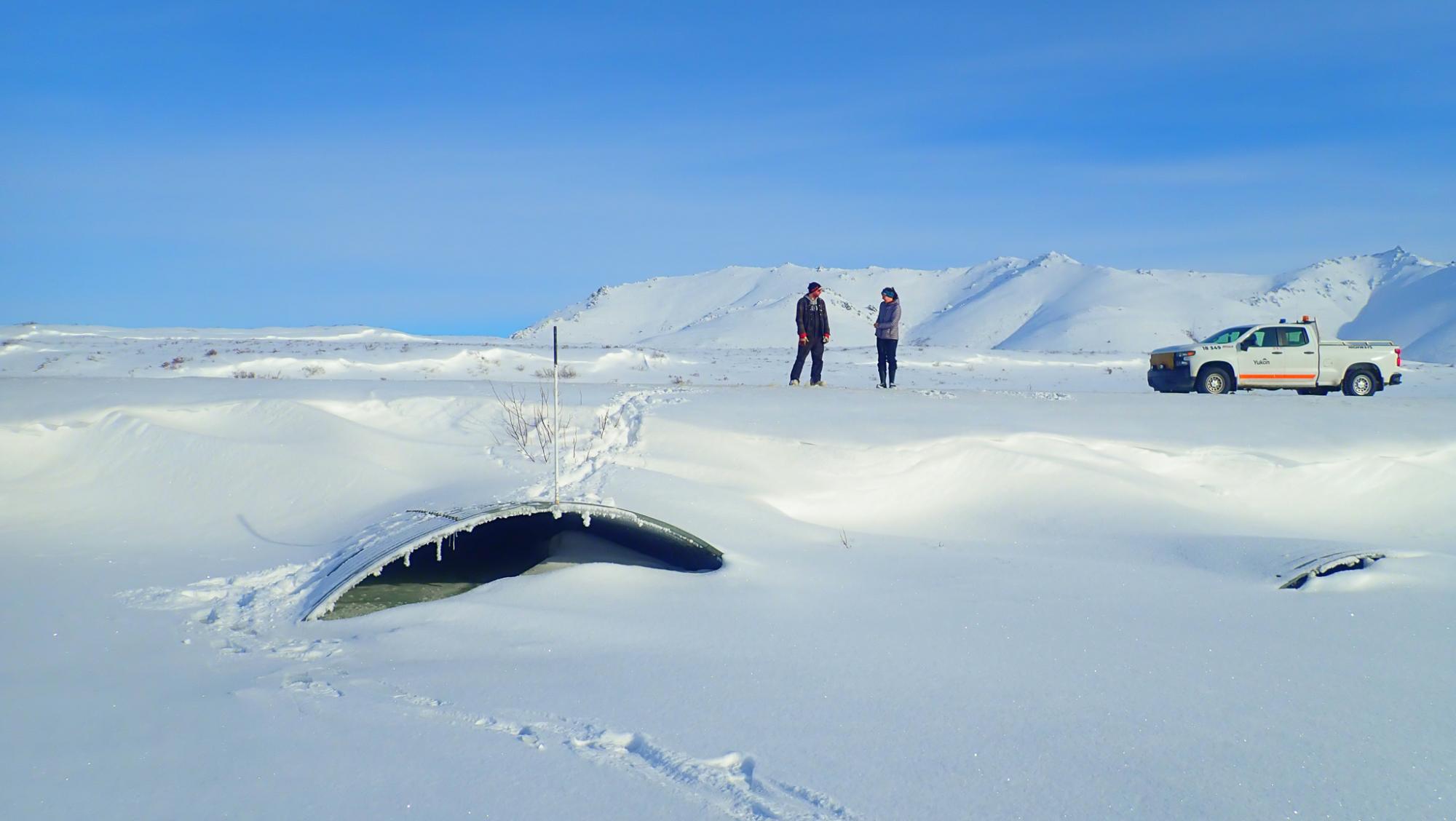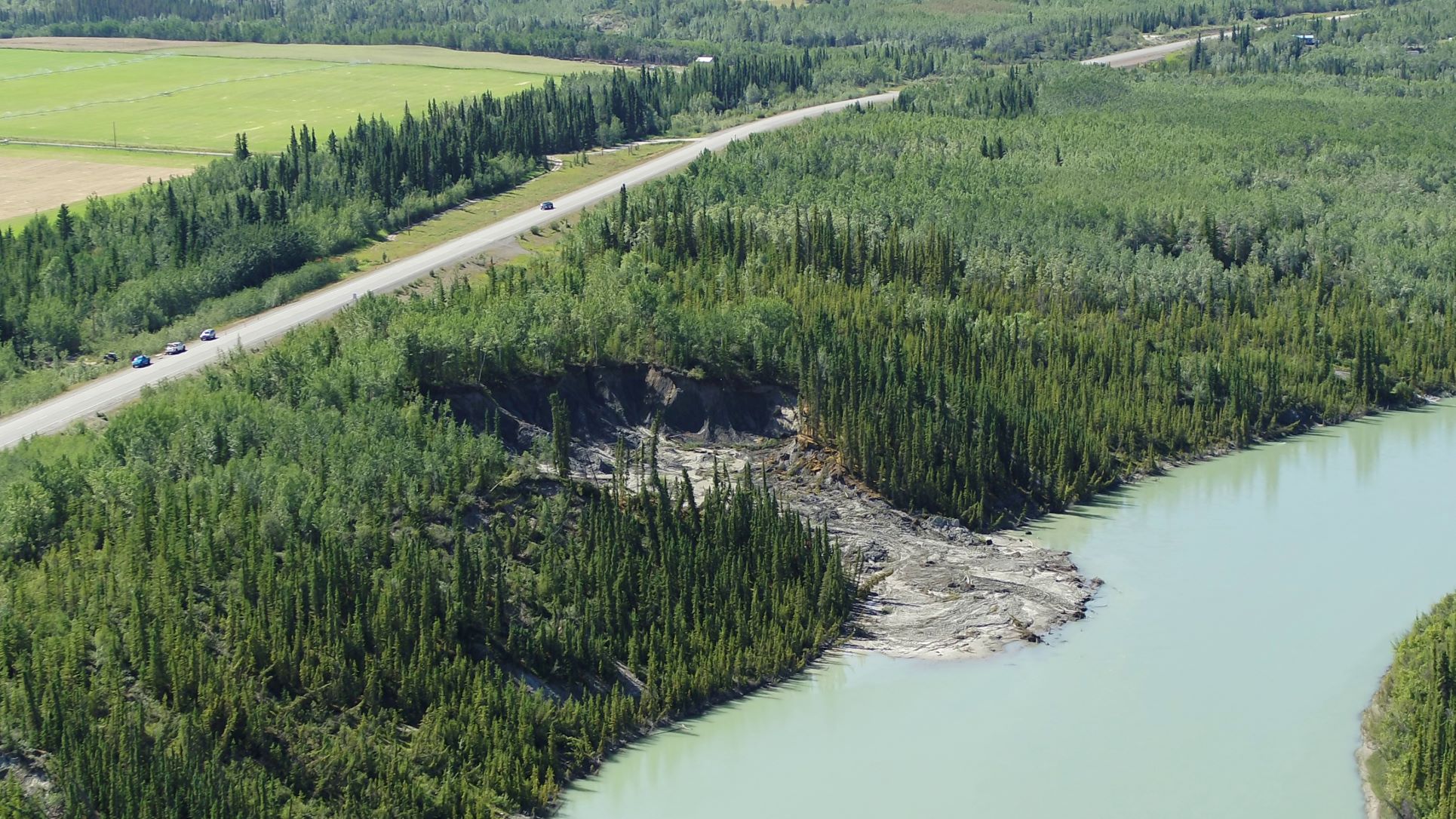 The Yukon’s highway transportation network is vulnerable to natural processes and geohazards. Climate change is contributing to more frequent and intense geohazards which translates into increased maintenance and repair costs, as well as potentially dangerous driving conditions. The primary objective of this project is to improve the resilience and safety of existing transportation corridors in the Yukon - with a current focus on the Dempster, Alaska, Klondike, and Silver Trail highways. The research team will work in close collaboration with Yukon government transportation experts to explore how best to use adapted, cost-effective approaches in a context where climate change will continue to generate unprecedented extreme conditions associated with permafrost and hydrology processes. The project addresses urgent transportation needs for the Yukon and focuses on geohazards that are unique to the North (including Northwest Territories, Alaska and British Columbia). It will also support decision making by Yukon government managers through accurate data measured by innovative technologies.
The Yukon’s highway transportation network is vulnerable to natural processes and geohazards. Climate change is contributing to more frequent and intense geohazards which translates into increased maintenance and repair costs, as well as potentially dangerous driving conditions. The primary objective of this project is to improve the resilience and safety of existing transportation corridors in the Yukon - with a current focus on the Dempster, Alaska, Klondike, and Silver Trail highways. The research team will work in close collaboration with Yukon government transportation experts to explore how best to use adapted, cost-effective approaches in a context where climate change will continue to generate unprecedented extreme conditions associated with permafrost and hydrology processes. The project addresses urgent transportation needs for the Yukon and focuses on geohazards that are unique to the North (including Northwest Territories, Alaska and British Columbia). It will also support decision making by Yukon government managers through accurate data measured by innovative technologies.

This project is coordinated by YukonU Research Centre’s Research Chair in Permafrost and Geoscience and the Climate Change Research program, in collaboration with McMaster University and Government of Yukon’s Highways and Public Works (HPW) and supported by ArcticNet's North by North program with ArcticNet.
Permafrost and Geoscience: This project builds on YukonU’s long-standing relationship with HPW to monitor permafrost-related geohazards and develop remediation along the Yukon’s transportation network. Within this ongoing relationship, the Permafrost and Geoscience Research program has developed a network of 71 monitoring stations, conducted detailed assessments of permafrost thaw-related geohazards at a dozen critical locations, and provided guidance for adaptation measures that will improve the resilience of the highway network. This project continues to build on this foundation by installing more sophisticated data loggers at key locations, creating detailed assessments to establish the factors contributing to permafrost thaw, and evaluating or implementing measures that will send alerts about (or eliminate the risk associated with) permafrost-related hazards. Permafrost research activities will include ground temperature monitoring, geohazard assessments, and testing remediation measures.
Hydrology: Hydrology-related geohazards to the Yukon transportation networks have not been subject to sustained research efforts by YukonU. Much of the science that is currently used to maintain and improve highway infrastructure relies on work conducted in the 1970s and the 1980s– prior to consideration of climate change and based on a partial understanding of northern streams and rivers.
Hydrology related geohazards are affecting Yukon’s highways and posing risk to travelers at all times of year. In the late-fall, winter and early-spring, ice formation in small rivers, streams, and drainage structures may generate hazardous driving conditions, including overflow and icing at low temperatures. Icing remediation costs more than $1M every winter and spring in Yukon, and interventions are not energy efficient and only partially successful. In the spring, summer and early-fall, runoff events caused by snowmelt and rainstorms (taking place in the presence of river ice or not) may generate floods, road washouts, and lateral erosion (both over and under dimensioning of the road infrastructure represents a cost).

Highway locations that are considered problematic from a highway planning, engineering, and maintenance perspective have been chosen as hydrology research sites. Instrumentation and site-specific studies will inform our understanding of the hydrological processes that represent geohazards, allowing for implementation of targeted, cost-effective hazard remediation strategies. Project activities are broken down into process-specific activities and include monitoring, simulation, forecasting and structural mitigation.
This project presents an opportunity to improve the way northern academic research groups support government’s short- and long-term decision-making in Yukon. Ultimately, this project is about providing a research basis to improve the resilience of the transportation corridors in cold regions that are significantly impacted by climate change. Research products will be provided in ways that are relevant, tangible, applicable, and feasible in the operating context that Yukon government manages. This program will ensure that the latest knowledge regarding natural hazards, including state-of-the-art applied research results, can be effectively and efficiently transferred to inform adapted design, operations, and maintenance of northern transportation networks.
|
Dr. Fabrice Calmels, Research Chair, Permafrost and Geoscience Research, YukonU Research Centre |
Dr. Benoit Turcotte, Senior Research Professional, Climate Change Research, YukonU Research Centre |
|
Louis-Philippe Roy, Research Professional, Permafrost and Geoscience Research, YukonU Research Centre |
Stephanie Saal, Research Professional, Climate Change Research, YukonU Research Centre |
|
Frances Amyot, Permafrost and Geoscience Research, YukonU Research Centre |
Dr. Ashley Dubnick, Research Professional, Climate Change Research, YukonU Research Centre |
|
Cyrielle Laurent, GIS Technician, Permafrost and Geoscience Research, YukonU Research Centre |
Mederic Girard, Research Professional, Climate Change Research, YukonU Research Centre |
|
Cathy Koot, Project Officer, Permafrost and Geoscience Research, YukonU Research Centre |
Avery Zammit, Project Officer, Climate Change Research, YukonU Research Centre |
|
Casey Buchanan, Research Assistant, Permafrost and Geoscience Research, YukonU Research Centre |
Graduate students (to be recruited during year 2 of the project)
|